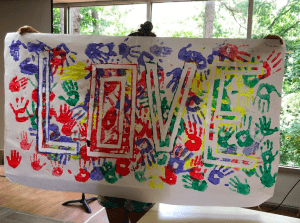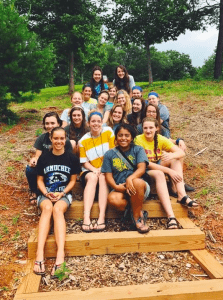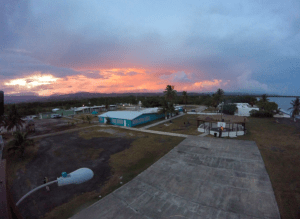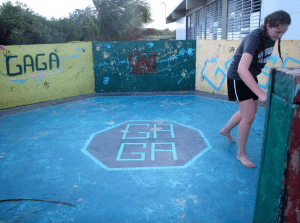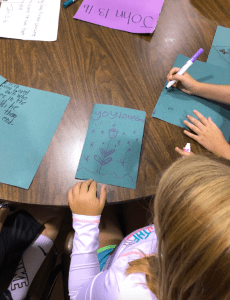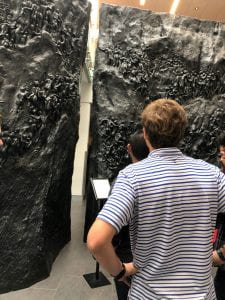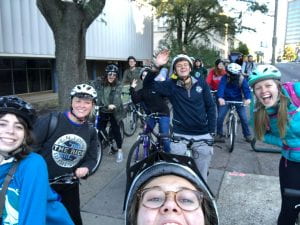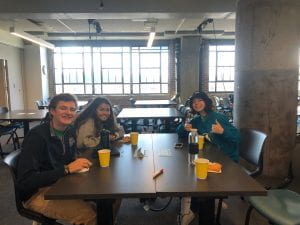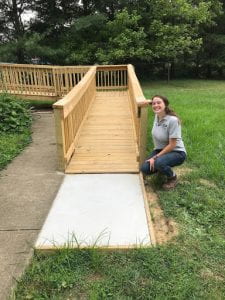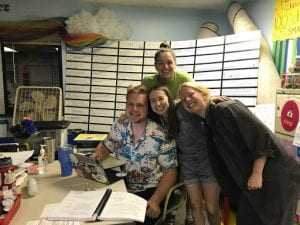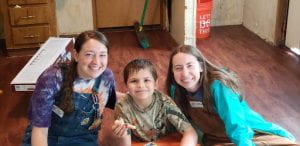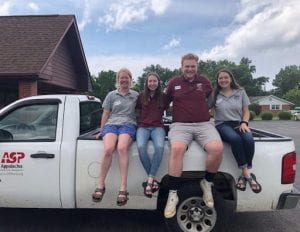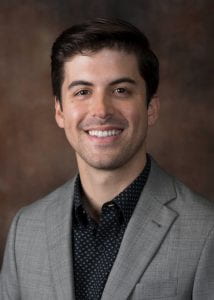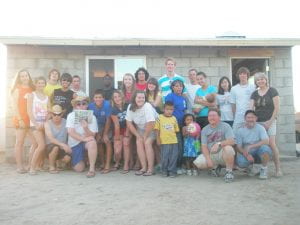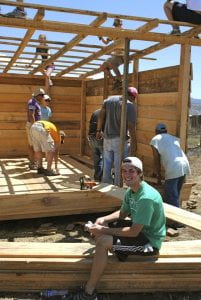Macy Hudson, a sophomore studying Faith & Social Justice and Corporate Communications. She serves as the Data and Evaluation Chair for Belmont on Mission’s Missional Engagement Council, on the Room in the Inn leadership team, as well as a student leader for Plunge trips. Today, Macy is sharing about her perspectives on being on mission have changed in her time of service.
For years, I had this dream: I wanted to go on a mission trip. I had seen all of my friends go with their churches, to another country, in matching shirts, to serve, and ultimately come back with a transformed life and a camera full of pictures. In my mind, these trips seemed perfect, and after many attempts to convince my church to go on one, I became closed off to serving anywhere except a third-world country mission trip setting. My church was particularly focused on serving the community I lived in, and I didn’t understand why. There were countries with no running water. No schooling. No understanding of Jesus. Coming up on my sophomore year of high school, I found myself filled with anger. Why did my congregation seem to only care for their people? Aren’t we as Christians called to serve the least of these? Filled with confusion and doubt, I signed up for a mission trip myself with an organization where I was able to go to Puerto Rico with high schoolers from all over the country. I packed my bag and flew to a new place, hopeful for revival and transformation in the community I would be serving.
Two weeks later, I arrived back in Tennessee, with a new realization about my life. I was set on going on that specific kind of mission trip because it looked fun and appealing. I was so caught up in wanting to fill my own insecurity of feeling inadequate that the concept of being a hero or greater than thee caught my eye. My jealously of my friends’ experiences on mission trips was fueled by the lack of confidence in what my personal mission was as a beloved child of God. By centering those feelings on a single type of mission, I was limiting myself to experiencing only a single quality of God. It took me setting my pride aside to vulnerably uncover my deepest self.
God has a quite ironic way of working. Upon returning home, I discovered my strong love for children in the foster care system. I felt a direct and clear call to child advocacy as a vocation and realized that I was made to serve the community around me. My church’s community outreach that I was quick to judge ended up being a great tool to get me plugged into local service. I was able to understand and deeply appreciate how committed my church was to serving their neighbors and how that is just as much a mission as a trip to another country is.
This experience taught me not only humility but also vulnerability. Because I was drowning in self-doubt, I constructed a picture-perfect mission trip in my mind and chose for myself that this was God’s call for my life to me. This is not to say that this type of mission is bad in any way, I just didn’t have the right intentions towards these trips and was close-minded to any other form of service but them. Through this, God revealed to me how my story in God’s mission is one of openness. I became able to stretch my arms out and pray for God to use me how He pleases instead of praying Him to use me in the ways I desired. This small mindset change welcomed transformation in my life in abundant ways.
If you have any questions about Macy’s experience, any of the programs that she is involved in, or Belmont on Mission in general, feel free to reach out to Macy or any of the Belmont on Mission team! Be sure to follow us on social media @BelmontOnMission to stay in the know about what’s going on!

